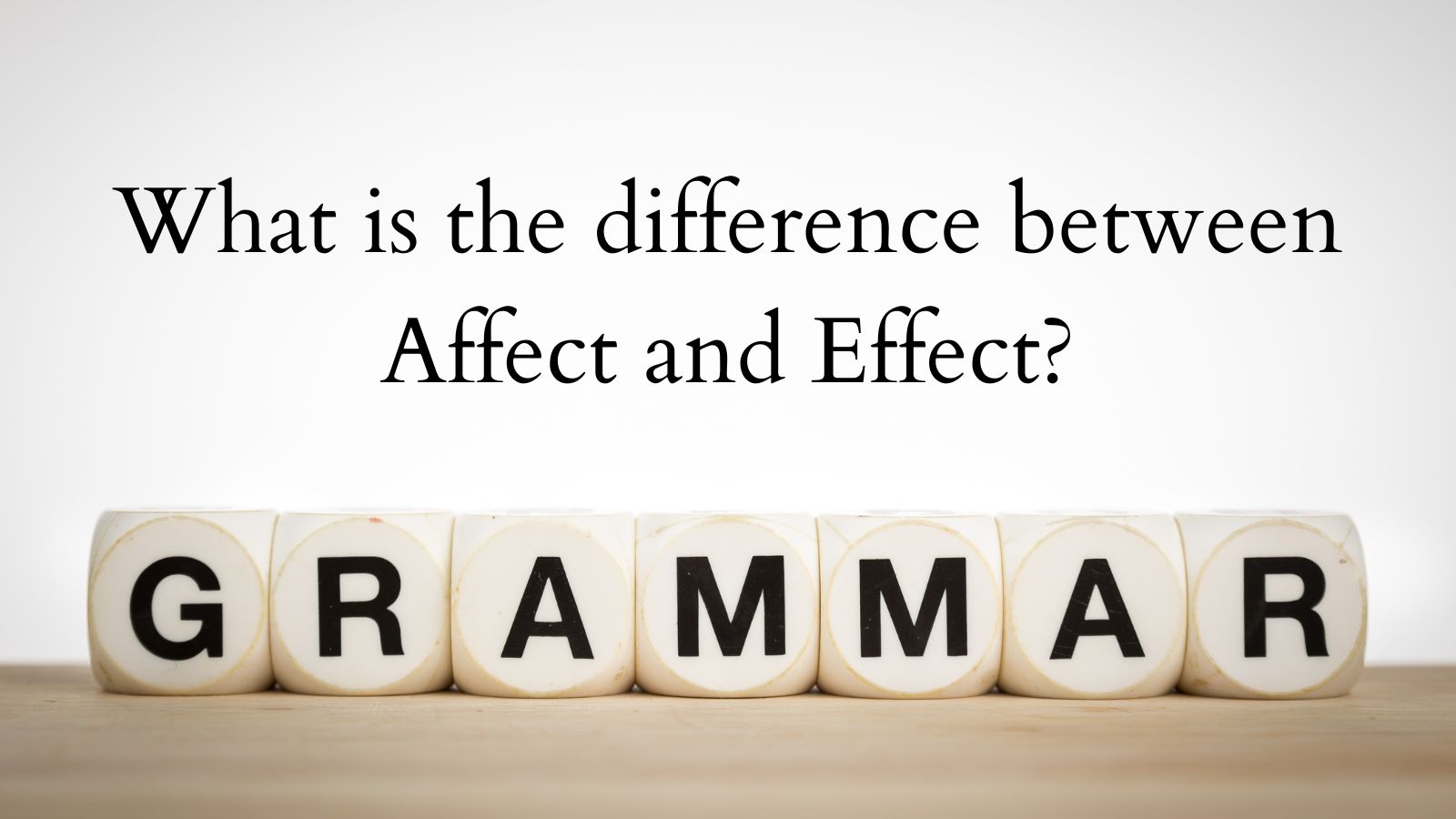What is the difference between Affect and Effect?
Untangling “Affect” vs. “Effect”
Few grammar mistakes invite as much confusion as mix-ups between “affect” and “effect.” Even experienced writers struggle with correctly distinguishing between these two words. However, understanding when to use “affect” vs. “effect” can greatly improve your writing clarity.
The key difference lies in their definitions:
“Affect” is usually used as a verb meaning “to influence.” For example:
- The rainy weather affected their picnic plans.
- His bad attitude affected the whole team’s morale.
“Effect” can be used as a noun or a verb:
- As a noun, it refers to a result or consequence of something. For example: “The effect of the policy change was unclear.”
- As a verb, “effect” means “to accomplish or execute something.” For example: “The new administration hopes to effect change in its first 100 days.”
A good way to remember it is:
Affect = Influence
Effect = Result
Some examples:
- The weather will likely affect voter turnout in the election.
- Staffing changes had no effect on the company’s profits.
- The massacre deeply affected the community.
- The law aims to effect stricter gun regulations.
There are a couple of exceptions. In certain contexts, “affect” can mean “to pretend” or “to imitate.” For example, “She affected an English accent.” And in psychology, “affect” refers to emotions or desires. These usages are relatively rare, though.
Etymology of affect and effect
Affect:
- Comes from the Latin verb “affectare” meaning “to strive after, to frequent”
- First used in the 14th century to mean “to influence something”
- Comes from a Latin root meaning “to do something to”
- The psychological meaning of “emotion or desire” came later in the 17th century
Effect:
- Comes from the Latin noun “effectus” meaning “a doing, execution, accomplishment”
- Was borrowed as a noun into English around the 14th century
- The verb form came later in the 16th century, adapted from the noun
- Comes from a Latin root related to “making, fashioning, or producing”
So in essence:
“Affect” as a verb for influencing comes from Latin roots indicating action towards something.
“Effect” as a noun indicating a result comes from Latin for the end product of fashioning, making, or executing.
Both words have evolved from their Latin origins, but those origins help illustrate how affect is action-oriented while effect is result-oriented.
Remembering these etymological differences can provide a helpful mnemonic device for choosing correctly between these two commonly confused words next time you go to use them in writing or speaking.
Tricks for remembering
Here are some handy tricks to help remember the difference between affect vs. effect:
Memorize the core definitions:
- Affect (verb) = Influence
- Effect (noun) = Result
Break them down by word function:
- Affect is almost always a VERB
- Effect is usually used as a NOUN
Look at the spellings:
- Affect has an “a” for ACTION
- Effect has an “e” for END product
Use Vocabulary Associations:
- I mentally link “affect” with words like ALTER, CHANGE, SWAY – they all relate to influencing something
- I associate “effect” with words like OUTCOME, RESULT, CONSEQUENCE
Replace with synonyms:
- If you can substitute “influence” or “change” use AFFECT
- If “result” or “consequence” makes sense, use EFFECT
Learn Common Phrases:
- “Affect change” = correct
- “Effect change” = incorrect
Mastering a few simple tricks like these can help cement when to properly use affect or effect. Find the ones that work best for you and apply them until the difference sticks!
- 100 Screenwriting Ideas to Get You Writing - January 20, 2026
- 100 Winter Storm Writing Prompts - January 17, 2026
- 100 Haunted House Story Starters: Craft Your Scariest Tale Yet - January 10, 2026





Great to know this information, I had confusions in the usage of these two words before. Through this article, I have a better understanding of the meaning and usage of these two words.